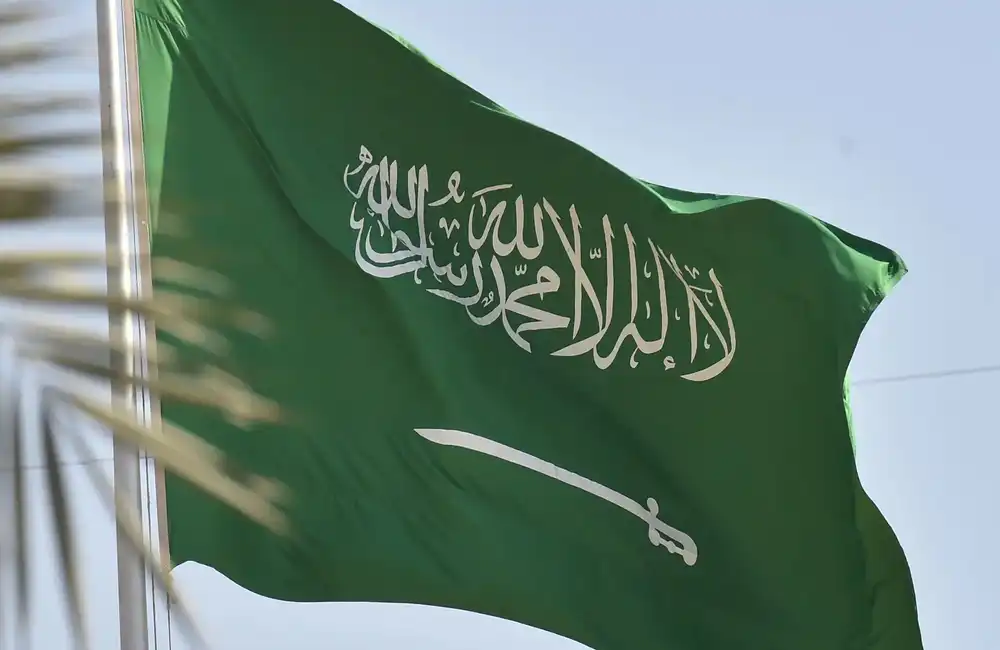Saudi Arabia reached a significant milestone in economic diversification, recording $137 billion in non-oil exports for 2024, while aiming to expand its international market presence.
The Kingdom continues to make significant strides in global sports by launching a strategic push into boxing along with its trade achievements. The Saudi-supported Sela team with TKO Group established a new boxing league with major fights like Chris Eubank Jr versus Conor Benn that drew global audience interest. Current developments affect global commodity markets and investor sentiment which leads analysts to reassess how the Kingdom will shape broad economic trends through its Vision 2030 initiative.
Non-Oil Export Breakdown and Growth Factors
Three dominant export categories generated the SAR 515 billion record. The merchandise trade sector achieved SAR 217 billion through expanding segments in petrochemicals, manufactured goods, and agricultural exports according to Saudi General Authority for Statistics. High-demand electronics and luxury goods dominated the SAR 90 billion re-export value. Service exports achieved a significant SAR 207 billion value thanks to government-backed technology and infrastructure projects that support tourism, logistics, and financial services.
The numbers are driven by positive trade agreements with Asian and African nations along with increased shipping capacities and the Kingdom's substantial investment in free zone infrastructure. The King Salman Energy Park (SPARK) and Red Sea Gateway Terminal serve as key facilitators for trade diversification efforts.
Despite hydrocarbons remaining essential to the wider economy, these figures demonstrate Saudi Arabia's advancement towards lessening its oil dependency. The Vision 2030 plan guides Saudi Arabia toward developing new industrial sectors and generating export growth outside oil to establish its status as an international center.
The Saudi Boxing Venture
The Saudi Boxing Venture represents a strategic initiative within Saudi Arabia's Vision 2030 framework. Global sports and entertainment markets are witnessing Saudi Arabia's new role as a significant investor. Through its subsidiary Sela and by the General Entertainment Authority, Saudi Arabia together with TKO Group established an international boxing league through support from the Public Investment Fund (PIF).
The initiative covers infrastructure development alongside talent advancement and media rights planning for the future. Through boxing, Saudi Arabia intends to develop local athletes while establishing itself as a premier destination for international sports events. The government plans to spend nearly $500 million to establish the league as part of its aggressive strategy to establish a presence in the sports-entertainment industry (Financial Times).
Thousands gathered to witness the highly awaited boxing match between Chris Eubank Jr and Conor Benn, which took place in Jeddah's specially constructed arena during the Saturday evening high-profile launch event. The unified decision victory of Eubank Jr in the thrilling match drew attention to both the athletes and Saudi Arabia’s media coverage and infrastructure. International boxing event viewership records were shattered in 2024 according to global pay-per-view providers, which highlighted the Kingdom’s successful early steps in sports-related commercial ventures (Sky Sports).
This initiative goes beyond viewer engagement by demonstrating Saudi Arabia's strategic ecosystem that combines tourism attractions with international partnerships and cultural diplomacy to support their non-oil economic development.
Market Sentiment and Boxing Outcomes
Scholarly research has demonstrated that major sports events consistently lead to temporary changes in market sentiment. Trading patterns shift due to the emotional surge from sporting victories, validating behavioural finance theories with real-world evidence. Companies that sponsor prominent events often see variations in their stock prices after games due to enhanced brand recognition or broader market movements.
The boxing match between Chris Eubank Jr and Conor Benn served as an example of these observed market dynamics. Media attention caused share values of companies linked to Saudi-based conglomerates and global brands to experience brief increases early Monday. Historically, these financial gains have shown to diminish over time if they lack continuous support from strategic brand initiatives.
The cultural excitement generated by major events leads to market fluctuations in areas related to commodities, extending beyond traditional stock exchanges. Logistics organisations that manage transportation and infrastructure for these events report increased activity levels, which impact stock demand for supply chain partners. Major ports that handle large volumes of merchandise traffic experience market-wide effects on freight transportation.
Commodity-Market Implications of Diversification and Boxing
The diversification of Saudi Arabia's economy relies fundamentally on its connections to commodity market supply chains. Saudi Arabia’s investments in trade and sports ventures directly impact the shipping, base metals, and fuel markets.
Saudi Arabia’s SAR 515 billion non-oil trade output requires continuous logistics operations, which benefit maritime operators and container terminal providers immediately. The Kingdom’s Red Sea ports serve as a conduit for 60% of goods that connect Saudi manufacturers to markets in the Middle East and Africa which depend on commodities. As Saudi Arabia reduces its dependence on crude and base-metal imports for manufacturing processes, including aluminium extrusion and steel rolling, these activities will begin to influence international supply-demand equilibrium.
The attention given to sporting logistics has a direct influence on the instability of commodity markets. The hedge-fund pullout from cocoa markets during 2023 demonstrated the transmission of liquidity shocks to specialised market sectors. Gulf-region energy and shipping industries that support prestigious boxing events may experience price volatility due to increased demand for aviation fuel and cargo transportation. Saudi Arabia's focus on hosting future boxing matches may lead to supply chain adjustments throughout Asia and Europe, as copper and lithium are essential for electronic components and boxing arena technology.
Opportunities and Risks for UK Investors
Saudi Arabia's move into sports-entertainment offers UK investors a mix of potential opportunities and risks. Logistics companies serving Middle Eastern markets should expect rising demand in response to growth in Gulf trade. Red Sea maritime companies will benefit from expanded transit routes enabled by Saudi Arabia’s infrastructural improvements. Energy firms that operate within aviation or local fuel delivery systems in the region should benefit from rising operations.
A growing appeal is expected for sports-entertainment equities apart from traditional commodities. The collaboration between global media rights organisations and Saudi-backed sports leagues presents substantial growth potential, driven by the popularity of high-profile events such as Eubank Jr. vs. Benn. The emerging competition among investors entering the sports sector could bring about increased financial risks which makes careful stock selection essential before dedicating large investment portfolios.
Metal market supply disruptions resulting from infrastructure limitations create operational challenges. Enterprises that depend on commodities prone to unexpected price hikes require risk management strategies in light of Saudi Arabia's expansion into its diversification projects.
Broader Vision 2030 Trajectory and Strategic Investor Monitoring
Saudi Arabia demonstrates its progressive economic plan through its simultaneous growth efforts in non-oil trade and sports investments. Vision 2030 directed policies work to expand financial options for domestic businesses and enhance international partnerships.
Through its role in fusing oil-importing nations’ interests with Saudi manufacturing and leisure benefits, the Kingdom demonstrates its wider strategic goals. Transformations happening in the Kingdom necessitate UK investors to track its development agenda attentively.
UK portfolio managers should stay updated about real-time developments concerning logistics companies and commodity-linked equities which might face impacts due to Saudi investments into sports. Investors can manage their exposure more effectively by aligning their investment holdings with both potential diversification benefits and related risks.
The Final Bell
Saudi Arabia has reached a historic SAR 515 billion non-oil export milestone while also investing in professional boxing, which demonstrates the Kingdom’s swift progress under Vision 2030. The government integrates commerce and culture to transform worldwide views while adjusting supply chains throughout commodity markets.
UK institutional investors need to watch Saudi Arabia's economic growth to capture new opportunities and control potential risks.

















